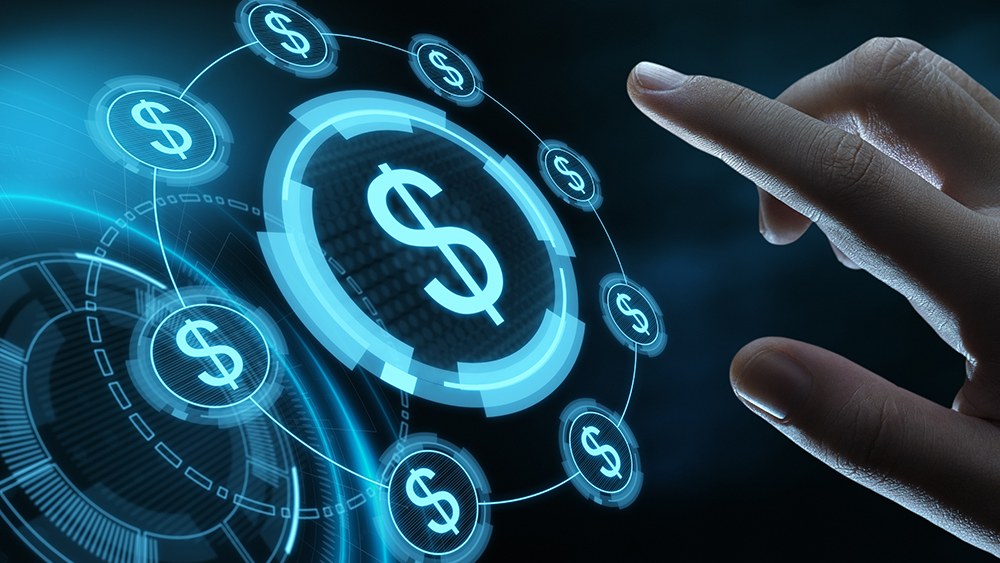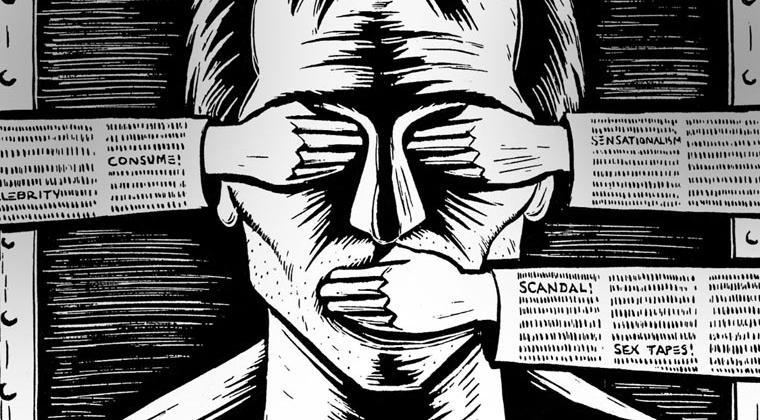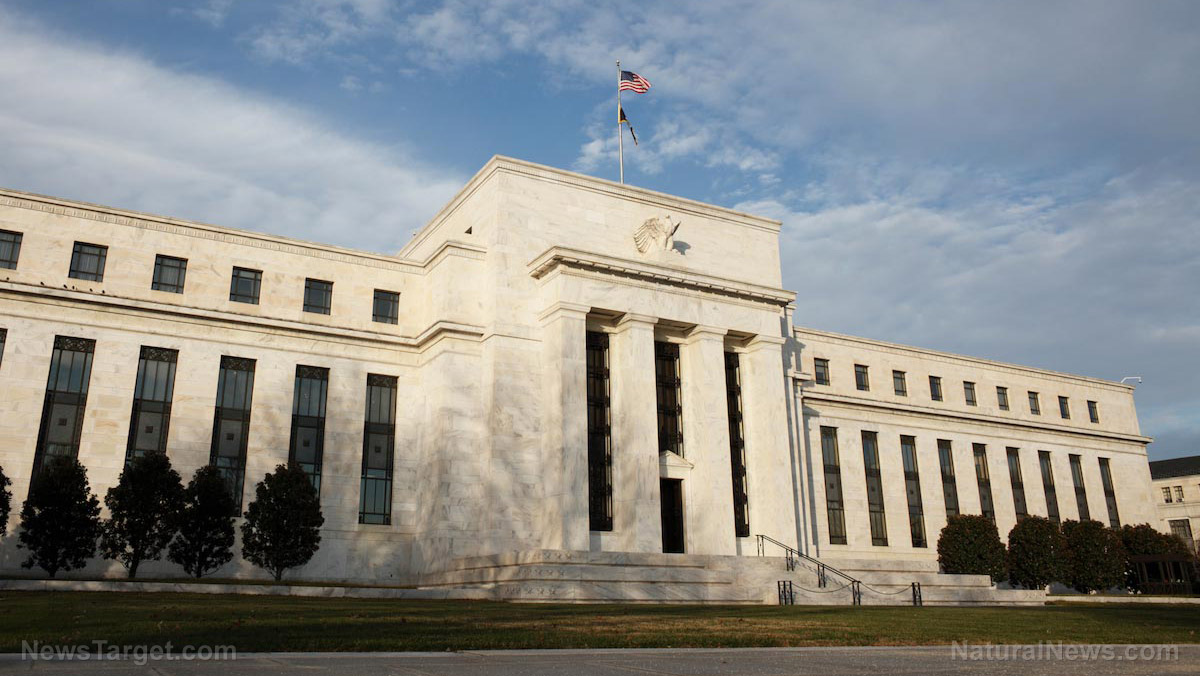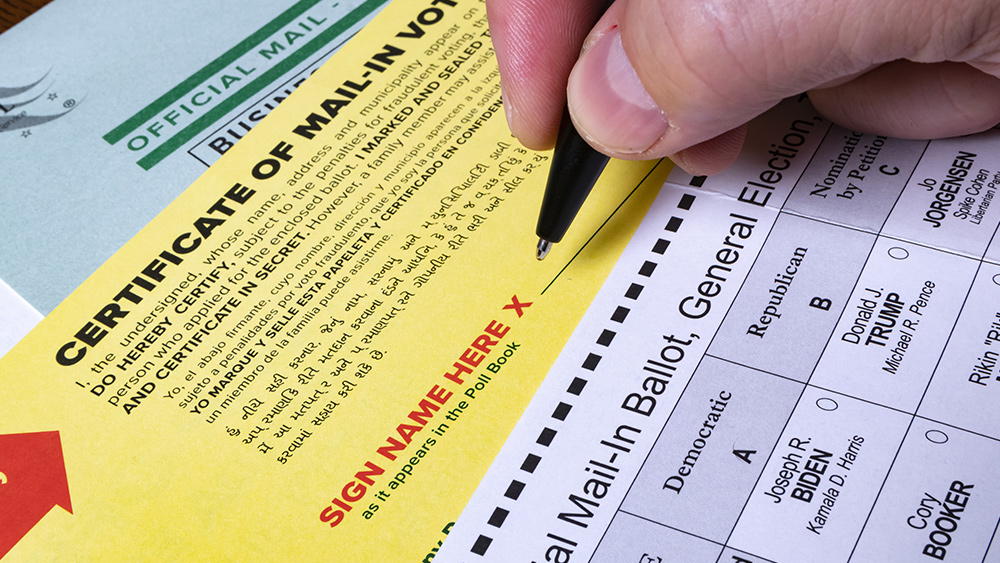James Grundvig of AMP News calls FedCoin garbage, says the Fed’s CBDC is nowhere near ready
07/26/2023 / By Arsenio Toledo

The central bank digital currency (CBDC) being developed by the Federal Reserve, known alternatively either as the FedCoin or the digital dollar, is unlikely to be ready until next year at the earliest.
This is according to recent reports regarding the status of the Fed’s development of a CBDC. (Related: Only 16% of Americans would support adoption of CBDC, survey finds.)
While the introduction of a government-issued digital currency is on the horizon, many speculate that there will be significant delays. “The FedCoin is not ready,” said James Grundvig of AMP News. “The FedCoin is coming, but it’s garbage. The FedCoin is nowhere near ready.”
Grundvig added that the Fed’s dream of introducing at least a pilot program for using the CBDC by October “is a dream – it won’t be ready the rest of this year.”
The latest news coming from the development is from the Fed’s branch in New York, which recently concluded a months-long test using the digital dollar.
Following a 12-week trial led by the New York Fed’s Innovation Center, the branch is now claiming that using a digital dollar or FedCoin could be an effective way to improve the rate at which domestic and international transactions are processed.
“From a central banking perspective, the proof of concept was conducive to exploring tokenized regulated deposits and understanding the potential functional benefits of central bank and commercial bank digital money operating together on a shared ledger,” said New York Innovation Center Director Per von Zelowitz.
Federal Reserve launches FedNow digital payment system
While the Federal Reserve has not put out any recent news regarding the creation of the country’s own CBDC, it did launch on July 20 a new government-backed real-time payment system.
The system, called FedNow, supposedly allows consumers and businesses to send and receive money within seconds at any time of the day, doing away with the typical lags of one to three days currently in place for the usual private online money transfer services.
Supporters of the FedNow claim that the near-instant transfer speed for cash could be very useful for consumers, especially for workers who currently have to wait between one to three days for their paychecks to clear.
“The Federal Reserve built the FedNow service to help make everyday payments over the coming years faster and more convenient,” claimed Fed Chair Jerome Powell.
But once most of the American financial network has signed up to benefit from the near-instant transfer speeds provided by FedNow, critics warn that this could be the last step necessary to convert dollars used in transactions into FedCoins.
FedNow currently only serves as a network handled by the Fed to allow banks and credit unions that sign up to make use of lightning-fast payment processing – the “high-speed highway,” as the Fed calls it. The approximately 9,000 banks and credit unions in the United States must still decide whether to join the system and then create their own mobile phone apps or websites where their customers can send and receive money thru FedNow.
The Fed’s latest announcement noted that at least 35 banks and credit unions have already signed up to participate, including Big Banks like JPMorgan Chase and Wells Fargo.
Learn more about CBDCs at CryptoCult.news.
Watch this episode of “Unrestricted Truths” on AMP News as host James Grundvig discusses the Fed’s plans for introducing a CBDC to the United States.
This video is from the AMPNews channel on Brighteon.com.
More related stories:
Central banks planning to introduce CBDC microchip implants, warns top economist.
Sources include:
Submit a correction >>
Tagged Under:
big government, CBDC, Central Bank Digital Currency, central banks, computing, crypto cult, currency crash, currency reset, cyber war, deception, digital currency, digital dollar, economic riot, fedcoin, Federal Reserve, FedNow, finance riot, Glitch, information technology, New York Fed
This article may contain statements that reflect the opinion of the author
RECENT NEWS & ARTICLES
COPYRIGHT © 2017 CYBER WAR NEWS



















